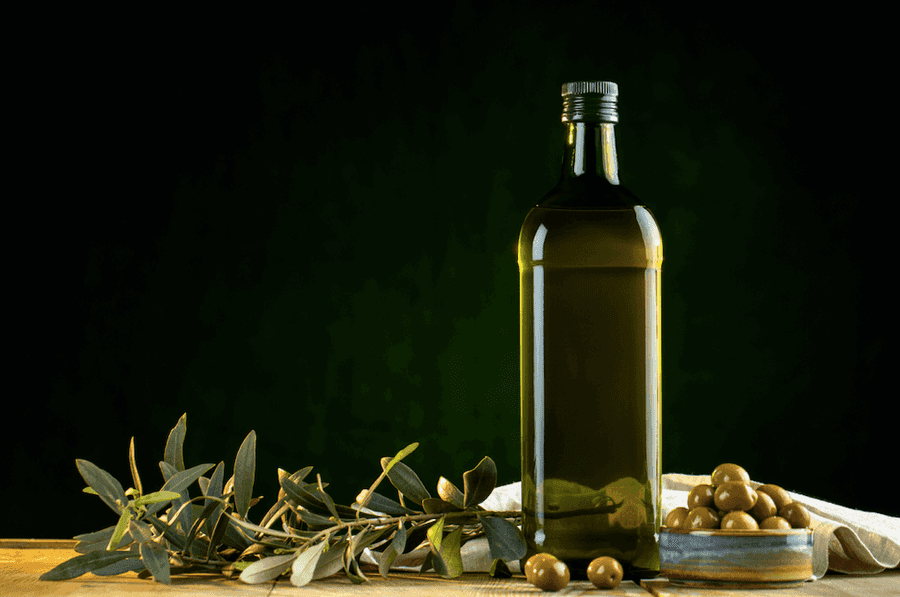The Top 5 Things to Look for When Choosing an Olive Oil for Health
by Amylee Amos PhD, RDN, IFMCPNutrition
Olive oil is an essential component of the Mediterranean diet and a likely reason for its well established health benefits. Olive oil has potent anti-inflammatory, antioxidative, and antiproliferative benefits. For these reasons and others, including the ability of olive oil to modulate or adjust the internal gut microbial environment, olive oil has been studied and shown to help with the prevention and treatment of cardiovascular disease, cancer, and neurodegenerative disease. One of the mechanisms by which olive oil may help the brain includes that it has been shown to help increase brain derived neurotrophic factor. For all of these reasons and more, consuming olive oil on a regular basis is a phenomenal way to increase healthspan and longevity.
Yet the olive oil options available in grocery stores are not all created equally. If you’re consuming olive oil for health reasons, it’s important that you choose an oil that has the components needed to provide those health benefits. Below we outline the top 5 things to look for when choosing an olive oil that will optimize your health.
Extra virgin olive oil:
Grocery stores often carry olive oil, virgin olive oil, and extra virgin olive oil. All of these oils contain similar fat content; however, extra virgin olive oil is the least processed and retains the highest amounts of disease fighting phytonutrients. Because of this, make sure you always choose a product that has the words “extra virgin olive oil”.
Cold pressed:
Cold pressed or expeller pressed are phrases that you should look for when choosing an olive oil. These terms refer to how the oil is extracted from the olive. Cold and expeller pressed oils refer to oils that are made by physically pressing the olives under cool temperatures. This preserves the nutrient integrity of the oil. Some oils are extracted by using chemicals, including highly carcinogenic chemicals like hexane, and high heat, which degrades the beneficial compounds in olive oil and contributes to disease.
Dark colored glass bottle:
Glass bottles do not have the many endocrine disrupting chemicals that can be found in plastic bottles. To keep the olive oil pure and free from harmful toxicants, choose olive oil that is stored in glass. Dark colored glass is especially important because exposure to light is a primary factor that degrades olive oil (1). Choose olive oil that is stored in amber or dark green glass to maintain the quality of the oil.
Known, recent harvest date:
Ideally, the bottle of olive oil will state the harvest date. You should use the oil within 12-18 months of the harvest date, so aim for a bottle with a recent harvest date. This is generally the length of time before breakdown of the polyphenolic compounds begins (assuming that the oil is also stored properly, meaning in a dark glass bottle, at a cool temperature of about 70℉, and tightly sealed to avoid exposure to oxygen)(1). While some research suggests that olive oil can be used longer than this range of time, this is only when the conditions of the oil have been tightly regulated, including during transit and storage in the grocery facility. As this is impossible to know if you’re buying your olive oil in a store, just stick with the 12-18 month since harvest date rule.
High in polyphenols:
The many health benefits of olive oil can be largely attributed to the high phenolic content of extra virgin olive oil (2). In other words, olive oil is high in compounds known as polyphenols that confer its extensive health benefits. Polyphenols are a type of phytonutrient, which are compounds even smaller than vitamins and minerals that are found in plant foods. All extra virgin olive oil contains polyphenols, but certain types of olive oil contain especially high concentrations. Certain olive varieties such as coratina, coroneiki, manzanillo, and cornicabra have particularly high phenolic content (3). Conveniently, some olive oil products actually list the amount of polyphenols found in the olive oil on the bottle. Ideally, you should look for an olive oil that contains a polyphenol count of at least 400ppm. In general, the higher polyphenol count the better (our team has seen olive oil polyphenol counts as high as 1,000+ppm); however, it should be noted that olive oil that is especially high in polyphenols tends to be rather bitter. If you start using high polyphenol olive on a regular basis, your taste buds will adjust and come to love the potency of the oil. As you get used to it, mix the oil with other ingredients like lemon, garlic, and fresh herbs to mask some of the bitterness.
Olive oil that meets the standards above is by far the best oil to consume for your health. However, when heated beyond its smoke point of 383℉, it loses many of its health benefits and can even become harmful. Thus, you should use olive oil without heat or use it for low heat cooking and stick to a healthful higher heat oil for cooking. For a recommendation for products that meet these standards, contact the Amos Institute today.
References:
- Jimenez-Lopez C, Carpena M, Lourenço-Lopes C, Gallardo-Gomez M, Lorenzo JM, Barba FJ, Prieto MA, Simal-Gandara J. Bioactive Compounds and Quality of Extra Virgin Olive Oil. Foods. 2020; 9(8):1014. https://doi.org/10.3390/foods9081014
- Gorzynik-Debicka, M., Przychodzen, P., Cappello, F., Kuban-Jankowska, A., Marino Gammazza, A., Knap, N., Wozniak, M., & Gorska-Ponikowska, M. (2018). Potential Health Benefits of Olive Oil and Plant Polyphenols. International journal of molecular sciences, 19(3), 686. https://doi.org/10.3390/ijms19030686
- Rigacci S, Stefani M. Nutraceutical Properties of Olive Oil Polyphenols. An Itinerary from Cultured Cells through Animal Models to Humans. Int J Mol Sci. 2016 May 31;17(6):843. doi: 10.3390/ijms17060843. PMID: 27258251; PMCID: PMC4926377.